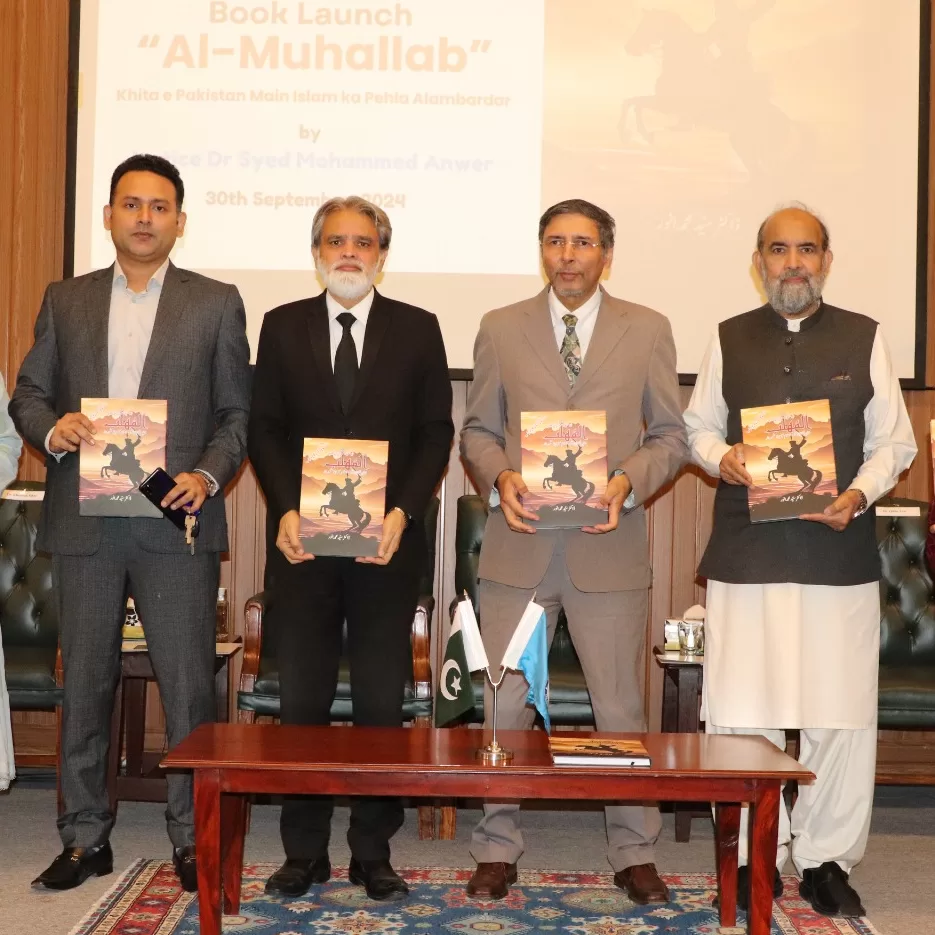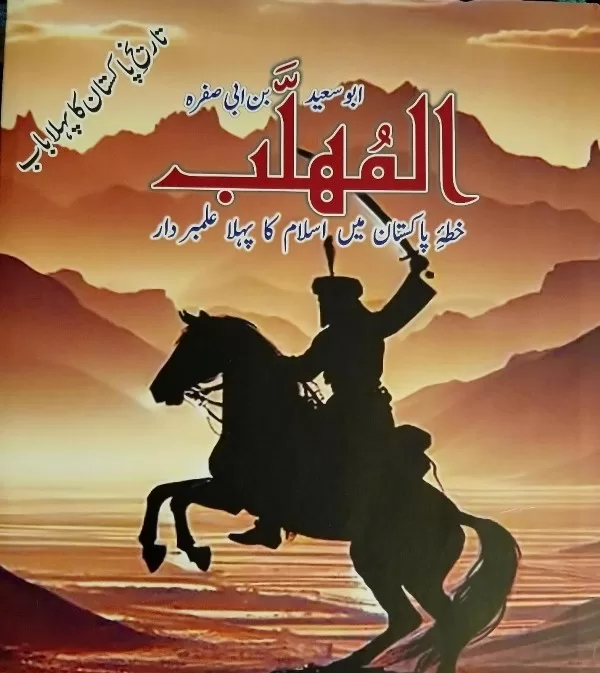History plays a pivotal role in nations’ journey towards the future. It reflects the origin, character, lifestyle, culture traditions and most importantly the thought process of a nation. History of every nation is replete with episodes that have affected the course to their destiny. It is popularly understood that Islam came to the area Pakistan belongs to when Muhammad Bin Qasim stepped on its soil. Seldom it is reckoned that advent of Islam in this part of the subcontinent happened at least fifty years before the arrival of Muhammed Bin Qasim through an Arab soldier, theorist, speaker and poet Al Muhallab. Justice Dr Syed Muhammad Anwar has put forth these facts as part of his research work on the history of Pakistan, of which his recent publication Al Muhallab is the first edition.
Al Muhallab belonged to Dabba- an area now part of UAE, at the cusp of the Strait of Hormuz; his complete name was Abu Saeed Al Muhallab Bin Abi Sufra Al Azadi who found the period of Hazrat Umar but was not panion of the Prophet Mohammad PBUH). Al Muhallab entered the area now part of Pakistan in 664 AD (44 Hijrah) from Khyber Pakhtunkhwa and departed to Khurasan in Iran from Balochistan after a year of his expedition. He was not only a soldier but a scholar who brought character building traits to this region and was quick in spreading his influence among the locals through his manners and good deeds. Those traits such as chivalry, righteousness, hospitality, community support etc are still obvious in our culture. Al Muhallab was not an ordinary man. He was famous for his wisdom, bravery, military and administrative leadership and remained Governor of Faras, Mosul, Armenia, Azerbaijan and Khurasan for seven years combined. He had close relations with the Afghans and was considered as the binding force between the Arabs and non-Arabs. He entered Khyber Pakhtunkhwa from Khyber Pass and went till Swabi in the east, he then headed to Bannu and Multan. He travelled along the western bank of the Indus and turned towards Qandabeel (Gandawah), proceeded to Kallat through Bolan Pass and headed back to Sajistan in Iran. He became the first Muslim conqueror who spread Islam in all four provinces of Pakistan.
Dr Anwar’s book has some unique aspects for the ease of readers. For instance, he has drawn references from some historical collections which although mentioned about Al Muhallab and his expedition to the areas that now fall in Pakistan yet ignored the fact that he became the first conqueror to introduce Islam to this region. Dr Anwar has established a contextual link between Al Muhallab’s passage through Pakistani areas with those who came after him. He has combined history with the geography which is important to understand the events that took place in a certain time frame.
Also with the old names of the places, he has also mentioned the currently used names for better understanding of the readers. Often there is a confusion between dates in Christian and Islamic calendars, fortunately Dr Anwar has mentioned both corresponding dates wherever it was required, so that the reader travels through the history in both eras at the same time. In addition, there is a mention of maps and sketches in abundance for the benefit and ease of the reader so that he may understand it in the correct context.

Dr Syed Anwar’s book is a fact revealing discourse which has the mandate to highlight changes in our hitherto incomplete history. He terms this obviation as a matter of ignorance on our part owing to the fact the as a nation Pakistanis followed the history that was handed over to them by the British. For the British, it was naturally not a work of much interest to dwell deep into the advent of Islam to this area, they just found it convenient to start with Muhammad Bin Qasim. The traits that Al Muhallab were known for, and were left behind as legacy are not only found in the Pakhtoons but also in the Baloch. It can be conveniently deduced that Al Muhallab cast strongest imprints on the people he met at the entrance and departure of his passage through this area. The history of both Pakhtuns and Baloch is replete with the tales of bravery, chivalry, hospitality and righteousness. While the Baloch were already under Arab influence and carried such traits which were emboldened by Al Muhallab, his real diligent pupils were Pakhtoons.
Justice Dr Syed Muhammad Anwar’s book is a revealing account of our history, rather a missing link which suffices the completion of journey that we were unaware of. Dr Anwar has done a national service in straightening the course of historical knowledge which merits to be now included in the curriculum of our educational institutions. There is a need to further refine his study and divulge into the traits that Al Muhallab left with us and have influenced our thought process as a nation for a journey towards better tomorrow.





